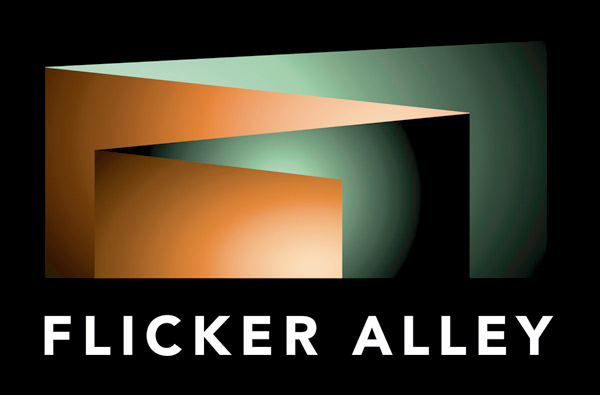Flicker Alley, The Blackhawk Films Collection® and Lobster Films have been producing partners in classic film production and releases for about sixteen years. Recently, one of our Flicker Alley staff members was able to interview the boss of both Blackhawk and Lobster; Serge Bromberg.
In 1985, Bromberg first started Lobster Films out of a passion for film that he’s had since childhood. “When I was 10, there were no VHS or DVD’s; The only way to watch films was to own them in Super 8 or 16mm, and watch them with a projector in a dark room” said Bromberg.
His passion turned from a faint spark to a raging fire. In 1999 his company formed a collaboration agreement with Blackhawk Films, the legendary company (established in 1927) owned and operated by the late David Shepard. Since Shepard’s passing in 2017, the sister companies have been working hand in hand, so closely that they have almost become a joint entity.
The Blackhawk Films Collection is a core resource for Lobster film’s restorations. Lobster is located in Paris, France, with a 4k scanning unit to scan original prints, a sound restoration team (L.E. Diapason) a live music recording studio, and a state of the art 4K screening room. Back in March, the Lobster team launched a similar restoration service out of Burbank, California!
The Lobster team will be coordinating with major archives in California, particularly the Academy Film Archive and UCLA Film & Television archive, to scan prints located in the US in 4K, and share them with the Paris location via secure, high definition digital link. And, of course, work for the US archives without shipping the films to Europe.
Flicker Alley recently released the US-Region version of Méliès: Fairy Tales in Color produced by Lobster and Blackhawk. Each film is a fascinating treasure, often discovered after hours of research and exploring.
“In the 1900’s, the Dufayel furniture store was like Ikea today. Parents would leave their kids at the front and go shopping more freely. Many Méliès original prints were found in the castle of the former Dufayel owner. If the films were amazing a century ago, why not show kids of today the amazing fairy tales as shot by Méliès, with the narrations?
“Each film has an original narration recorded, but if parents wish (and in our mind, it is even better), they can chose “music only” and do the narration themselves: or even ask their kids to make up a narration of their own. It is fun, a rare family experience, and sharing the pleasure of Melies’ films brings them back to life” said Bromberg.
In 2008 Lobster had produced a DVD set first published by Blackhawk Films® & Flicker Alley, Méliès, the First Wizard of Cinema, which contains all of his surviving films at the time, restored with 2009 technology. According to Bromberg, “The effort to redsicover Méliès films has been with Lobster for years. On average, every year, one new Méliès lost film is discovered somewhere in the world. This year we thought, why don’t we find a new audience?”
All the films on this set were restored in 2k or 4k from the best original surviving elements. There was a collaboration with film collectors and all the major film archives on the project; EYE Film Institute, Library of Congress, Cinémathèque française and Národní Filmovy Archiv. “I want to thank them because without the work of all the archives since the mid 30’s, these films would not be here any longer,” said Bromberg.
According to Bromberg and the Lobster Film’s Twitter followers, this collection is in high demand in France.
Lobster has a handful of film projects in the making for 2019. Some of them include: L’argent (Money – 1928), Marcel L’Herbier’s 3 hour long masterpiece featuring 2 new orchestral tracks. Other titles include: King of the Circus, more Méliès shorts and 10 silents from director, Julien Duvivier.
A day in the office at Lobster films usually includes about 30 people working in various areas. They work on scanning content, authoring DVD’s, repairing and mastering sound, image clean-up, meetings with collectors and visits to the vault.
“[A day in the office is like] People in the beehive trying to make cinema honey, totally disorganized, fun and the result is unique,” Bromberg.
According to Bromberg, Lobster’s main goal for today’s generation is to allow them to discover wonderful films. “As Bertrand Tavernier would say, there’s no films of the past and films of today. There is just good films and not so good films. Today, we must allow people to watch the films that are still alive after all these years, that have not aged. When a film is wonderful, who cares if it is one century or a week old, if it is silent, or if the actors are forgotten… Or if fashion has changed, the amazement is still intact, and the new audiences still experience it.”
For all you cinefiles out there, if Bromberg had a chance to chat with you he’d ask you: What films do you have? What films can we share?
“Cinema is an excuse to meet people and share the pleasure of watching films.”
For those of you dreaming to make movies or be in them, Bromberg shares this piece of advice, “Be crazy and be hungry. In French, we would say “Soyez gourmand.”
